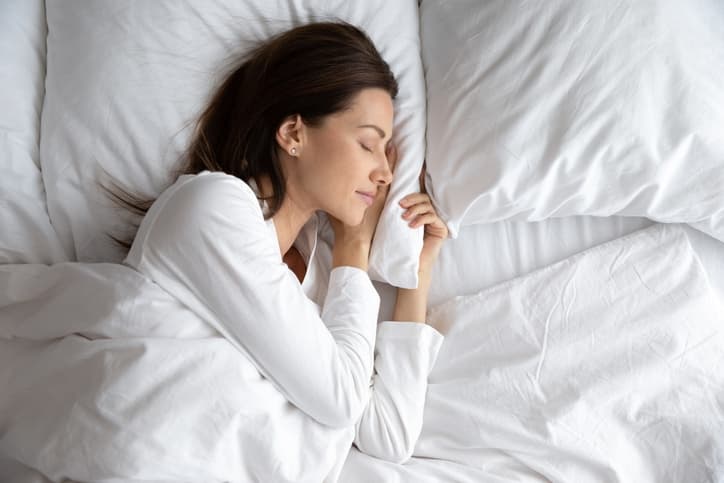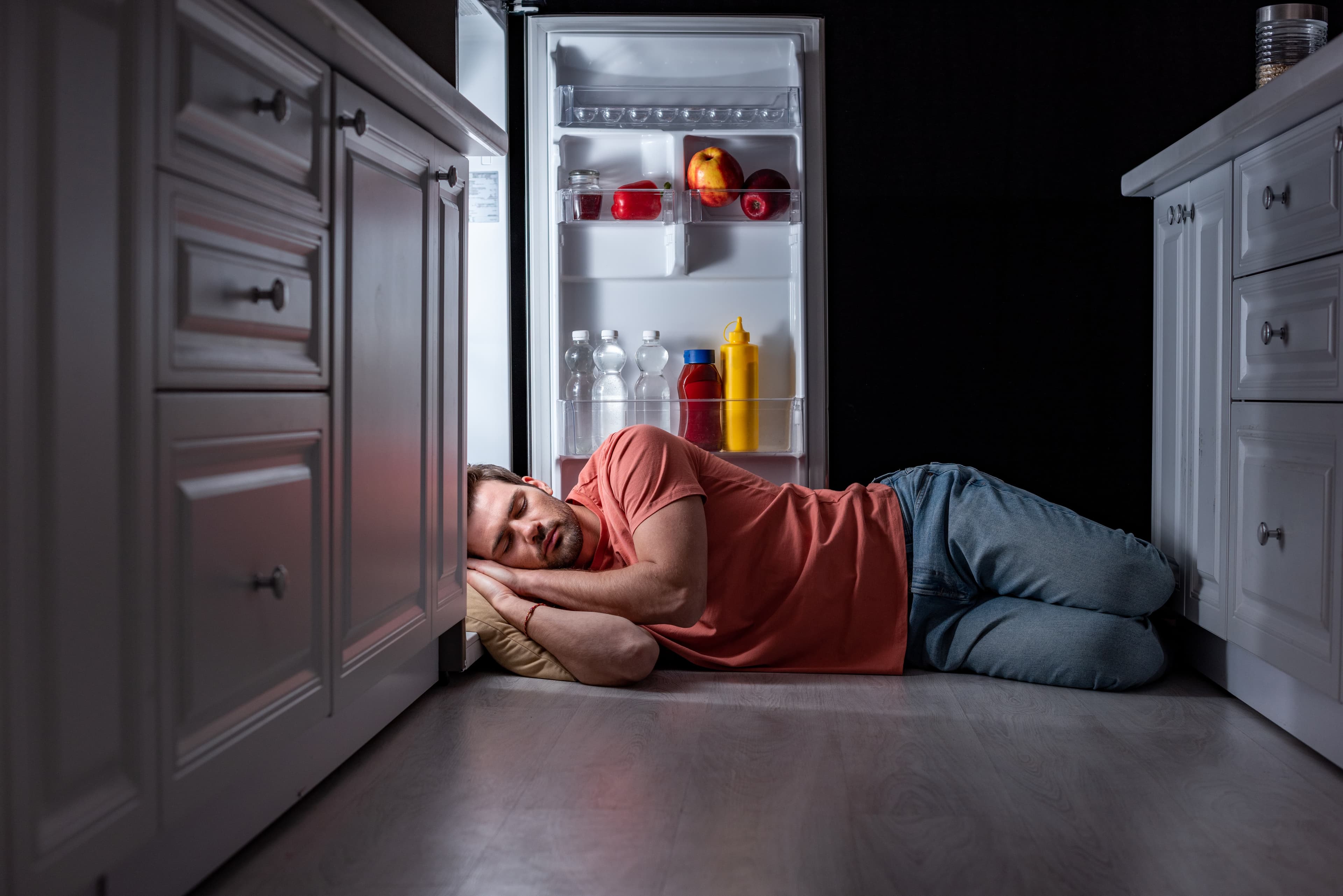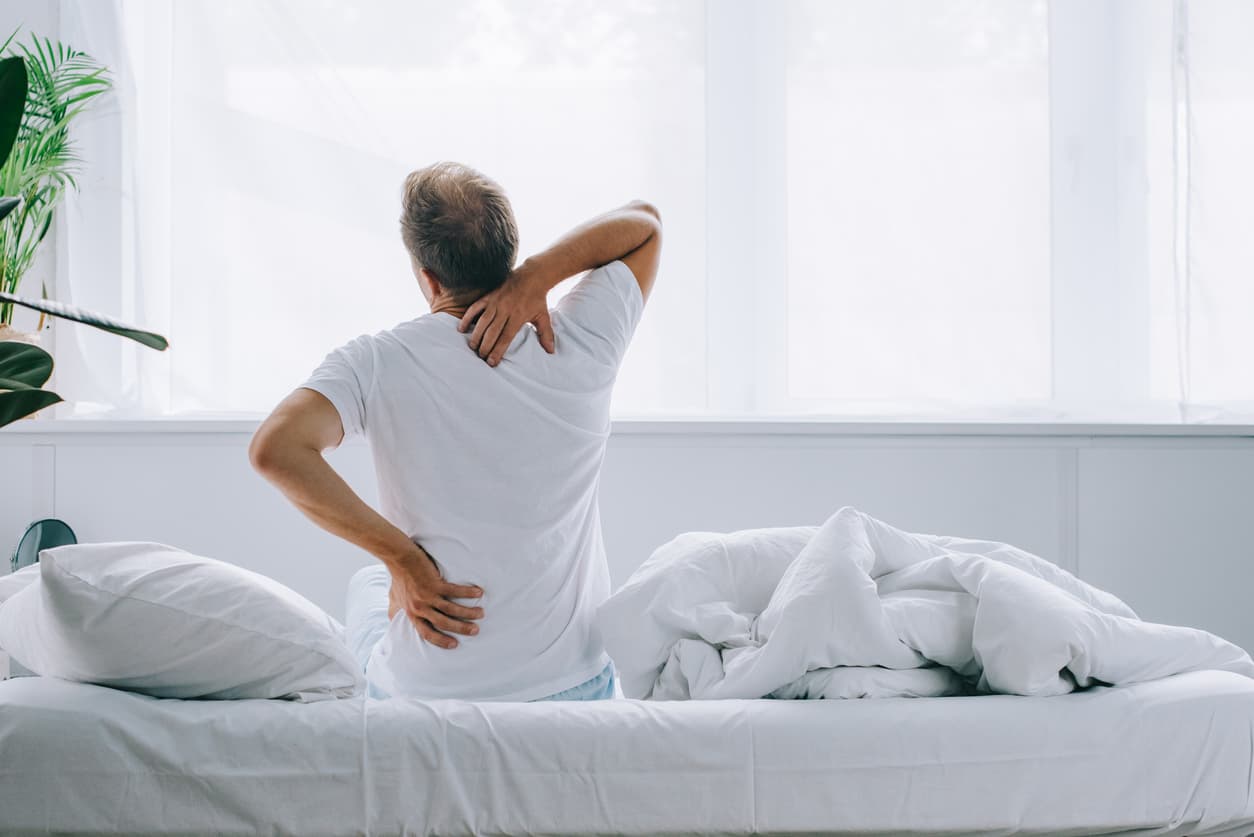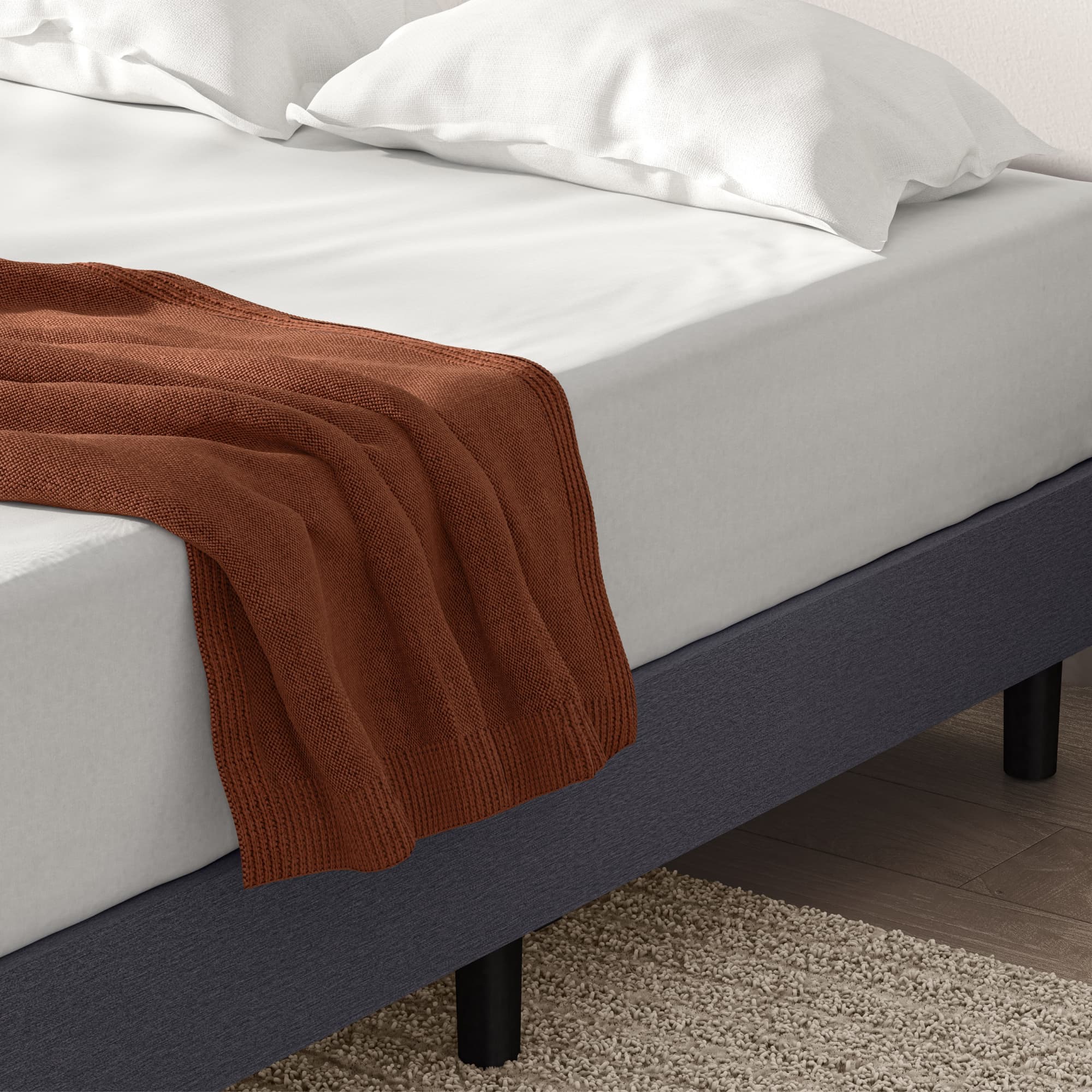Do you find yourself kicking off all of your blankets during the night or waking up in a puddle of sweat? So do at least 14% of other U.S. adults —and 46% of them report their sleep quality as fair to poor.
While sleeping hot isn’t usually a medical concern, it can make it difficult for you to get the deep, restorative sleep that your body needs.
So let’s dive into the reasons why you might be getting hot while sleeping. And what you can do to cool off and get a restful night’s sleep.
Hot Sleeper: What is the Impact on Sleep Quality?
Our bodies’ core temperatures naturally drop by around 1-2° F during sleep. As we release this heat, our skin temperature can rise, resulting in excessive warmth and night sweats. This excess heat alone can lead to a night of tossing and turning, unable to get comfortable.
On a deeper level, the heat that your body releases as it cools can get trapped under pajamas and blankets. This forces your body to work harder to regulate your temperature throughout the night. All of this can lead to poor sleep quality.
Effects of Sleeping Hot on Mental Health
So how does sleeping hot impact your mental health? Let’s take a look.
Increased Anxiety and Irritability
First of all, heat in general can significantly affect our moods, increasing anxiety and irritability. Numerous studies have shown that as temperatures rise, both blood oxygen levels and parasympathetic nervous system activity (our bodies’ stress regulation system) decline.
These effects can result in decreased cognitive abilities and difficulty regulating stress and mood.
Disrupted Sleep Patterns
Sleeping hot can also disrupt your sleep patterns, resulting in worsened mental health problems such as anxiety and depression. A recent study showed that sleep quality improvements made a significant difference in mental health. Especially for those suffering from mild to severe anxiety, depression, and stress.
Understanding the Causes of Sleeping Hot
Sometimes people sleep hot simply because of genetics, but often, getting hot while sleeping is due to your sleep environment or habits, such as:
Room Temperature
Generally, the ideal sleeping temperature is between 60 and 67° F —lower for hot sleepers and higher for cold sleepers. So if you sleep hot, don’t be afraid to turn down the air conditioner or open a window and run some fans. Especially during hotter weather!
Bedding Materials
Dense, high-thread-count sheets and heavy blankets don’t allow heat and humidity to dissipate effectively. Instead, they trap all the heat that your body releases throughout the night, causing you to overheat as you sleep. Synthetic fabrics are especially bad for breathability, so look for natural fibers instead
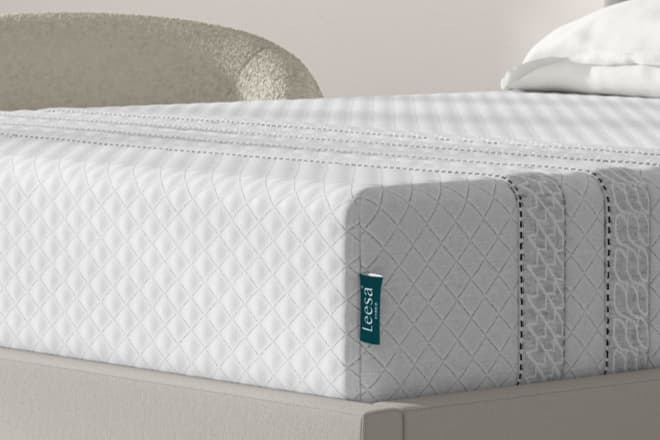
Mattress Type
Memory foam is amazing for cradling your joints and supporting your spine, but it can also hold onto all that heat you’re putting off. Cheaper memory foam mattresses are often made from poor-quality foam that compacts and traps heat. Look for memory foam mattresses that are designed to breathe and help keep you cool. Try the Leesa Oasis Chill Hybrid or the Leesa Sapira Chill Hybrid.
Health Issues
Several different medications and health issues can make you sleep hotter than normal, including antidepressants, hormone therapy, and diabetes drugs. Common illnesses, like a fever or the flu, and infections can raise your core body temperature as well. There are also some chronic conditions, such as hyperthyroidism and heart disease, that may cause you to get hot while sleeping.
Alcohol and Caffeine
Caffeine is a great stimulant to wake you up in the morning, but it’s not so great when you’re trying to fall asleep at night. In addition to keeping you awake and alert, it also increases your core body temperature, and its effects can last 3-5 hours.
Alcohol, on the other hand, dilates your blood vessels, which lowers your core temperature but can increase your skin temperature. In addition, it also increases cortisol levels, which can raise core body temperatures. Which leads us to…
Stress and Anxiety
Higher cortisol levels are also caused by stress and anxiety. In addition to boosting your core temperature, these conditions keep your brain alert and engaged. This makes it harder for you to fall asleep and stay asleep.
Tips for Hot Sleepers
So what can you do to stay cool at night and get quality, restful sleep? Take a look at these tips.
Choose Breathable Bedding
Breathable bedding will help heat dissipate instead of trapping it under the covers with you. While those super-high thread count sheets might be enticing, the dense weave will make it harder for heat to escape.
In reality, moderate-thread-count sheets made from higher-quality fibers will be just as comfortable and offer a better balance of softness and breathability. So look for high-quality sheets with a moderate thread count and lightweight blankets made from natural fibers like bamboo or cotton.
Use Cooling Mattresses and Toppers
One of the best investments for hot sleepers is a breathable, cooling mattress or mattress protector. A mattress that offers good airflow—instead of trapping body heat—can make a huge difference when it comes to sleeping hot. Especially if you prefer a memory foam or hybrid mattress.
Take Cool Showers Before Bed
You can also help cool your body down by taking a cool shower right before bed. Just make sure it’s cool and not cold, as a cold shower will wake you up and make it more difficult to fall asleep.
Many people also find that a warm bath helps as well. That might sound counterproductive, but a warm bath can jumpstart the nighttime cooling process. So your body begins lowering your core temperature well before you climb into bed.
Buy a Cooling Pillow
Cooling pillows, like the Leesa Ultra Cool Memory Foam Pillow, use cooling gel technology to stay cool to the touch. They help pull heat away from your head as you sleep. The idea that we lose most of our heat through our heads is just a myth. But cooling down your face, head, and neck can actually help the rest of your body feel cooler.
Consider a Bed Fan
Bed fans fit between your sheet and comforter and are designed to help pull heat away from you and circulate the air to keep you cool at night. However, they can be a bit pricey, so if a bed fan isn’t in your budget, a regular box or floor fan pointed at your bed can help as well.
Why a Leesa Mattress is the Best Choice for Hot Sleepers
Leesa’s ChillTM mattresses are designed to offer the ultimate cooling comfort for hot sleepers. We use premium, breathable foam to help heat dissipate quickly, plus we add copper-infused memory foam layers that are designed to absorb excess body heat.
Our ultra-cool quilted mattress covers are also made with cooling, phase-change fibers that wick away heat and moisture, keeping your body at its ideal sleep temperature. In short, our mattresses are specifically designed to keep you cool and comfortable all night long!
Try out our Leesa Sapira Chill Hybrid or Oasis Chill Hybrid risk-free and say goodbye to those hot, sweaty nights!
